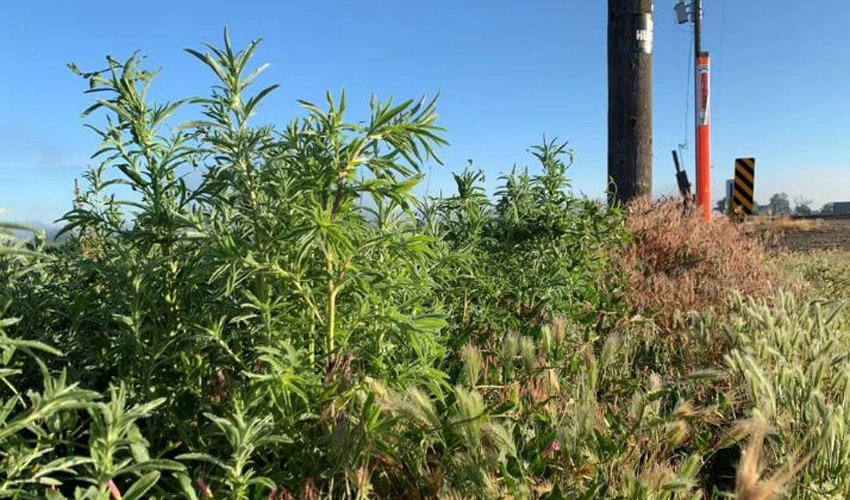Crop-killing weeds advance across US farmland as chemicals lose effectiveness

CHICAGO (Reuters) - Crop-killing weeds such as kochia are advancing across the U.S. northern plains and Midwest, in the latest sign that weeds are developing resistance to chemicals faster than companies including Bayer (BAYGn.DE) and Corteva (CTVA.N) can develop new ones to fight them.
In many cases weeds are developing resistance against multiple herbicides, scientists said.
Reuters interviewed two dozen farmers, scientists, weed specialists and company executives and reviewed eight academic papers published since 2021 which described how kochia, waterhemp, giant ragweed and other weeds are squeezing out crops in North Dakota, Iowa, Wisconsin and Minnesota as chemicals lose their effectiveness.
Over the last two decades, chemical companies have reduced the share of revenue devoted to research and development spending and are introducing fewer products, according to AgbioInvestor, a UK-based firm that analyzes the crop protection sector.
Farmers say their losing battle with weeds threatens grain and oilseed harvests at a time when growers are grappling with inflation and extreme weather linked to climate change.
"We're in for big problems over the next 10 years for sure," said Ian Heap, director of the International Survey of Herbicide Resistant Weeds, a group of scientists in over 80 countries that maintains a global database. "We are in for a real shake-up."
The database records reduced effectiveness for glyphosate, one of the most common herbicides, against 361 weed species, including 180 in the U.S., affecting corn, soy, sugar beets and other crops.
Some 21 weed species globally showed resistance to dicamba, the most recent major US chemical, which launched in 2017. Environmental groups argue that farmers should embrace natural weed-control methods instead of chemicals.
Kochia, which spreads as many as 30,000 seeds per plant, can cut yields by up to 70% if left unchecked, according to Take Action, a farmer resource program of the United Soybean Board.
Other factors, including the development of more robust seeds, have pushed overall global crop yields higher. But scientists expect weed problems to worsen, with some weeds showing resistance to chemicals even on first exposure.







